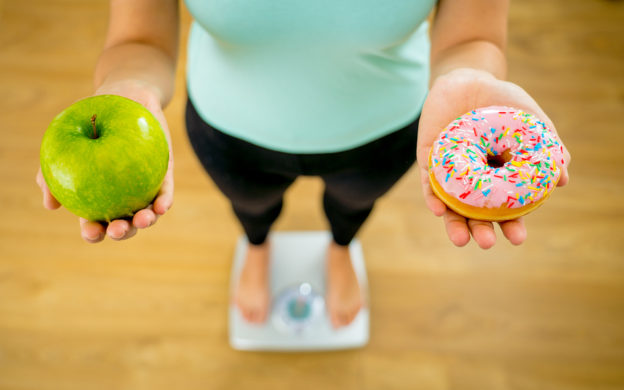By David Blyweiss, M.D., Advanced Natural Wellness
June 10, 2019
A couple of weeks ago while catching up on some of the latest scientific health insights, I ran across some news out of Brazil.
It turns out that 30% of cancer deaths in Brazil are linked to just five things. An unhealthy diet, lack of physical activity, excess weight, smoking and alcohol.
It caught my eye, but didn’t surprise me in the least.
However, within an hour I ran across a World Health Organization news release. It was a synopsis of new WHO guidelines outlining ways to help reduce the risk of dementia.
The article immediately started with: “People can reduce their risk of dementia by getting regular exercise, not smoking, avoiding harmful use of alcohol, controlling their weight, eating a healthy diet…”
Talk about a déjà vu moment!
That’s when I remembered a large scale analysis released in the New England Journal of Medicine last year.
It looked at the same risk factors in relation to life expectancy. And it found that people who adhered to all five healthy habits – a healthy diet, regular exercise, non-smoking, healthy weight and responsible drinking – could add 12 to 14 years to their potential lifespan.
MD Exposes the Hidden Danger to Your Eyes

When your eyesight starts to fail, it's a real problem. Suddenly you can't go to the grocery store... you can't get to the doctor if you have an emergency... you can't meet your friends for dinner…
Your "regular" doctor doesn't have time to keep up with the latest research. And the same goes for eye doctors. They go to school to learn how to fit you for glasses and contacts, but have no way of preventing the damage and loss of eyesight that threatens your freedom and independence.
Let me show you something that explains a LOT about how your eyes work.
In my FREE Special Report, I'll show you a HUGE, untapped resource for your eyes that safely and naturally restores clear, effortless eyesight.
Click here to get started...
Sticking with these five habits also lowers the chance of diabetes by somewhere between 72% and 84%. (I’ll bet if I trolled the medical journals, I would find this same advice for the prevention of many other health conditions.)
Well, here’s the thing. These are all the same health recommendations that I’ve given to my patients – and you – over the past couple of decades. They are the most effective and efficient ways to ensure a long life in good health.
And I have a very simple way for you to break them down into do-able parts.
You see, out of these five healthy habits, there are only two of them that apply to every single person on earth.
Everybody eats. Everybody moves. And not everyone does either of these very well. So let’s start there.
Food is Information … Movement is Life
Most people just think of food as something to eat. I think of it as instructions for your genes and fighting disease or helping it along depending on what you’re putting in your mouth, and urge you to do the same.
The fact is, some of the nutrients in healthy foods are so powerful that they can even turn good genes on and bad genes off.
For example, cruciferous vegetables can switch on tumor inhibitor genes. This explains why vegetables like broccoli, kale, cauliflower, bok choy and cabbage are such detoxification superstars and potent cancer fighters.
Grapes are high in resveratrol, which is especially notable for being able to turn on your SIRT1 gene. This is commonly called the “youth gene”. It helps your body produce more mitochondria… the energy factories that keep your cells powered up to youthful levels.
Curcumin (the main compound in curry) appears to work on many different levels to change gene expression related to cancer, inflammation and Alzheimer’s disease.
But these aren’t the only foods that work to support healthy gene activity and protect your health.
The Mediterranean way of eating can also activate genes that play a role in protecting against cardiovascular disease, inflammation and the build up of arterial plaque.
Are You Suffering From...
- Love handles and a pot belly
- Romance that isn't what it used to
- Forgetfulness and inattention
- Low (or no) strength and endurance
- A sex drive that's shifted into neutral...or worse
If so...you may have Mature Male Burnout. Click here to discover more about this unique condition and what you can do about it.
This style of eating isn’t hard to do. It includes an extremely wide variety of plant-based foods. A lot of fish and nuts. Plenty of olive oil. Moderate red wine intake. Very little red meat.
(What it doesn’t include are processed meats, sugary foods, fried foods and refined carbohydrates. These manmade foods are more likely to increase the expression of genes associated with inflammation, cancer and cardiovascular disease.)
So take the time to choose foods with your health in mind.
And what about exercise? Well, staying physically active can also shut down bad genes and trigger the activation of good ones. It can help improve the expression of genes that reduce the incidence of cancer, diabetes, heart disease, neurological disorders and more. It increases BDNF (brain derived neurotrophic factor) to keep your brain younger and mind clearer.
And here’s the coolest part.
Certain people carry an obesity-promoting gene variant (FTO). So they are genetically disposed to have about a 22% higher risk of obesity than those without it.
But guess what happens when these people start exercising? It reduces expression of the gene and cuts the risk of obesity by about 30% compared to their inactive counterparts!
On top of that, once you start eating healthier and exercising regularly, any excess weight you’re carrying around will automatically start melting away. So that takes care of three out of the five healthy habits.
As far as smoking and excess alcohol intake are concerned, it’s in our own hands to give up these unhealthy pastimes. There are plenty of support groups and help-lines for both. If you’re having a hard time giving up one or the other (or both), I urge you to reach out.
SOURCES:
Healthy habits could avoid 27% of cancer cases in Brazil. Press Release.
Fundação de Amparo à Pesquisa do Estado de São Paulo via EurekAlert. May 2019.
Adopting a healthy lifestyle helps reduce the risk of dementia. News Release. World Health Organization. May 2019.
Li Y, et al. Impact of Healthy Lifestyle Factors on Life Expectancies in the US Population. Circulation. 2018 Jul 24;138(4):345-355.
Reis JP, et al. Lifestyle factors and risk for new-onset diabetes: a population-based cohort study. Ann Intern Med. 2011 Sep 6;155(5):292-9.
Khan MA, et al. Sulforaphane Reverses the Expression of Various Tumor Suppressor Genes by Targeting DNMT3B and HDAC1 in Human Cervical Cancer Cells. Evid Based Complement Alternat Med. 2015; 2015: 412149.
Ungvari Z, et al. Mitochondrial protection by resveratrol. Exerc Sport Sci Rev. 2011 Jul;39(3):128-32.
Boyanapalli SS, et al. “Curcumin, the King of Spices”: Epigenetic Regulatory Mechanisms in the Prevention of Cancer, Neurological, and Inflammatory Diseases. Curr Pharmacol Rep. 2015 Apr;1(2):129-139.
Castañer O, et al. In vivo transcriptomic profile after a Mediterranean diet in high-cardiovascular risk patients: a randomized controlled trial. Am J Clin Nutr. 2013 Sep;98(3):845-53.
Camargo A, et al. Expression of proinflammatory, proatherogenic genes is reduced by the Mediterranean diet in elderly people. Br J Nutr. 2012 Aug;108(3):500-8.
Bouchard-Mercier A. et al. Associations between dietary patterns and gene expression profiles of healthy men and women: a cross-sectional study. Nutr J. 2013; 12: 24.
Grazioli E, et al. Physical activity in the prevention of human diseases: role of epigenetic modifications. BMC Genomics. 2017; 18(Suppl 8): 802.
Kilpeläinen TO, et al. Physical activity attenuates the influence of FTO variants on obesity risk: a meta-analysis of 218,166 adults and 19,268 children. PLoS Med. 2011 Nov;8(11):e1001116.







